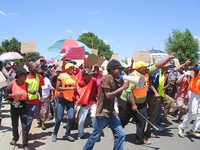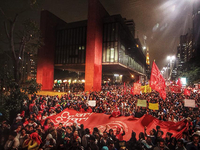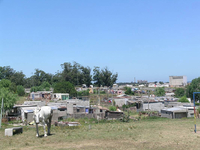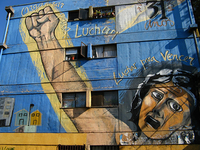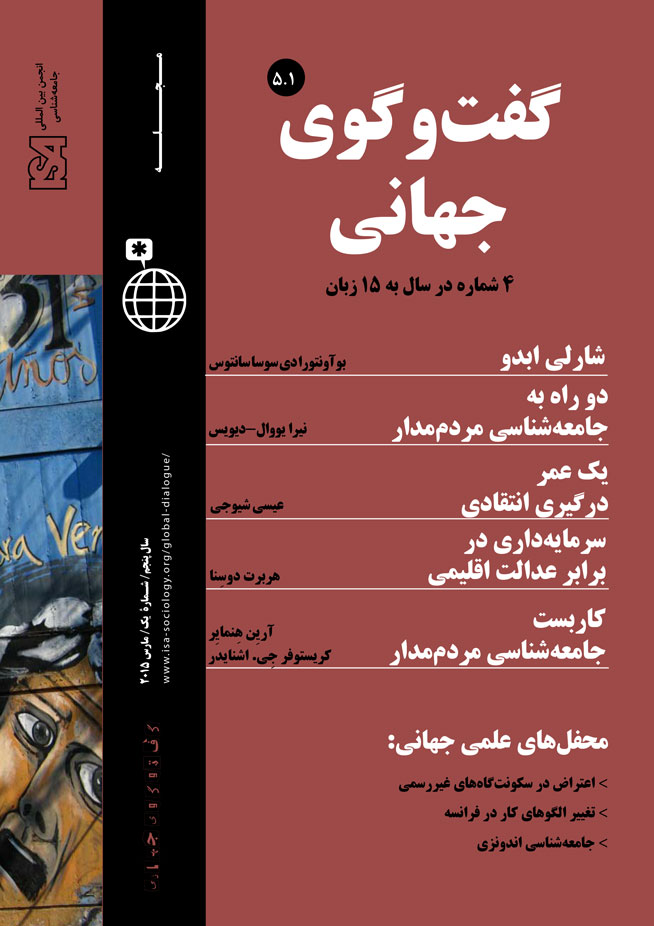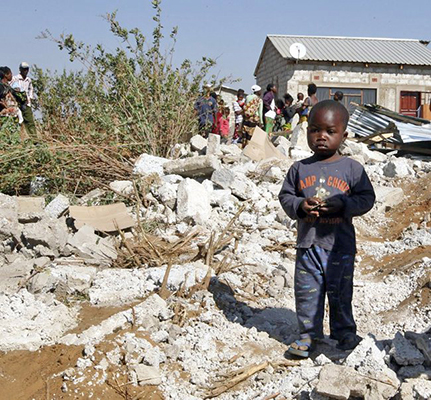In April 2013, fifteen armored vehicles and policemen stormed plot 10144 in Lusaka West. Unsuspecting residents woke up to the shock of being evicted. They could not do anything but watch because they were being threatened with weapons. Police demolished 33 houses. About 365 people, many of whom had occupied the land for twenty years became homeless. Some evictees were low-ranking police officers. There was no eviction notice provided. The Lusaka City Council and court bailiffs were not present. After the eviction, senior police officers appropriated the land for themselves. More evictions and demolitions followed during that month. Frustrated, on May 15 evicted families marched in solidarity towards the Vice-President’s Office but were stopped and dispersed by armed police. They did not possess a police permit, a requirement of the Public Order Act. Evictees had no one to turn to but themselves. Why was this spark not enough to begin a movement to prevent land evictions and why have existing housing social movements failed to protect the evicted? Here I explore possible answers to these questions.
The Lusaka West case was just one case among many. Evictions involving hundreds of households have occurred without inspiring organized action. In 2014 alone, several took place in Lusaka – fourteen houses were demolished on July 25 in Kanyama, 100 houses were demolished in Chinika on October 3 and on November 18 soldiers forcefully evicted villagers in Mikango Barracks. The policy of demolishing housing built illegally on public and private land goes back to the Zambia government’s policy announced in 2007. Since coming to power in 2011, the Patriotic Front government has continued to eradicate illegal and even some upgraded squatter settlements – settlements that had acquired this status as part of the policy of previous governments. In the process of demolition, legal procedures have not been followed, and in some cases evictions have resulted in fatalities. This has only raised public concern.
These conditions are fertile for social mobilization – 70% of the urban population live in slums, which means it has a squatter settlement and urban population that could easily reach a critical mass; and the country has a strong documented history of protest and collective action.
How to explain the absence of protest? First, there is a long history of intolerance from among political elites starting with the maintenance of the Public Order Act of 1955. The Act was used by the British colonial administration to impose control over freedom fighters. Succeeding presidents have not repealed it. The Act requires protesters to obtain a permit through the police and Minister of Home Affairs. It is however vague as to the grounds for granting permits. They can only be obtained seven days before the day of protest. When the cause falls outside what is recognized by the law or when there is opposition from political elites, permits are often not granted. Moreover, the law does not recognize de facto tenure rights, so evictees from illegal settlements do not have legal backing for protest, despite having lived on the land for many years.
It is not only reactionary character of the political elite that contributes to the lack of protest, but also fear of the consequences of marching without a permit. Violation of the Public Order Act is often accompanied by use of police brutality evoking fear even among settlers in upgraded squatter settlements. For example, during forced evictions in Kampasa near the airport on June 14, 2013, two men were fatally shot, and one injured by the Zambia National Service. My interviewees in the upgraded squatter settlement, George, worried about the recent evictions and contemplated their own position even when they had a measure of tenure security through occupancy licenses. When asked what they would do if the government came to repossess their land, they felt that they would have to give it up and find somewhere else to go.
Government and civil society fail to protect potential evictees because of scarcity of financial resources. The right to housing is not enshrined in the constitution because, as President Mwanawasa argued in 2008, the government would then have to commit financial resources to ensure the fulfilment of that right – finances it claims it does not have. In this way, the government has publicly refused the obligation to compensate evictees. Rather than provide resources to improve the informal settlements, it is cheaper to simply demolish them.
Civil society also lacks the financial resources to protect illegal settlement dwellers from eviction. Although there is a strong presence of Zambia Land Alliance and Homeless International through an organization called The People’s Process on Housing and Poverty in Zambia which, in principle, should take up the fight against evictions, in reality they don’t. “Often times the alliance has not mobilized communities or handled land cases of public interest as expected by the public sometimes due to the lack of capacity or resources to follow up the cases” (Zambia Land Alliance, 2014, http://www.zla.org.zm/?p=9). In 2010, accusations of corruption led to suspension of disbursements of aid to both government and civil society organizations, which ground many projects to a halt for almost 2 years. Thus, these organizations only go as far as issuing statements and threats of demonstrations without actual follow-through.
In summary the two main challenges to the rise of an anti-eviction movement in Lusaka and to new social movements in Zambia are, first, the open hostility to any form of protest on the part of political elites and, second, the limited financial resources available to government and civil society to solve the housing problem. Once people are evicted they see no opportunity for redress and so collective protest would have no purpose. Only changes in the law on public order and increased economic growth could provide conditions under which anti-eviction movements might arise.
Singumbe Muyeba, University of Cape Town, South Africa <singumbe.muyeba@uct.ac.za>
